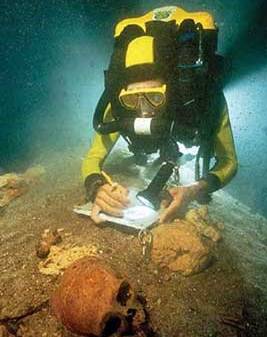Research centre offers crime scene diving
 (CNS): The Central Caribbean Marine Institute (CCMI) will be hosting Cayman’s first underwater crime scene investigation (CSI) training course later this month. The three day course at the Little Cayman Research Centre forms part of its Dive with a Researcher (DWAR) Programme. The lead diver and instructor will be marine forensic biologist, Dr Hector Cruz-Lopez. Dr Cruz-Lopez is a professor of Forensic Science at the Palm Beach State College Criminal Justice Institute and serves on the National Forensic Science Initiative at West Virginia University.
(CNS): The Central Caribbean Marine Institute (CCMI) will be hosting Cayman’s first underwater crime scene investigation (CSI) training course later this month. The three day course at the Little Cayman Research Centre forms part of its Dive with a Researcher (DWAR) Programme. The lead diver and instructor will be marine forensic biologist, Dr Hector Cruz-Lopez. Dr Cruz-Lopez is a professor of Forensic Science at the Palm Beach State College Criminal Justice Institute and serves on the National Forensic Science Initiative at West Virginia University.
CSI is an ever-growing science that has become quite well documented in both the press and the television CSI series. The use of science to prove the facts, especially in the arena of the law, or, more importantly, in the prosecution of the unlawful, has become quite popular. Forensic science and pathology have been developed since the 1700s, gaining a technological boost from the 1960s onwards. However, the old forensic science methodology is currently undergoing a transformation with the introduction of underwater CSI.
44% of the coral cover on the world’s reefs has been lost to date, and two thirds of the Caribbean’s reefs remain at risk (World Resources Institute 2004). Unfortunately, some people are still slow to realise the potential impact their behaviour can have on our reefs, often resulting in negligent and/or illegal activity. As a result, underwater CSI is being used to help to identify and prosecute those who continue to threaten the existence of our reefs and marine ecosystems.
Underwater CSI is a set of protocols and techniques for investigating underwater crime scenes; as such, it can be quite useful in determining short-term violations that have had negative impacts on reefs. The results of these investigations can be documented, recorded and analysed in a systematic fashion using tool kits developed to support these types of investigations.
The CCMI said similar techniques are now being used worldwide by marine enforcement officers, environment assessment agencies, coral reef researchers, litigators and natural resource managers. “‘The enforcement of laws and regulations designed to protect coral reefs and other marine habitats deserve specialized means to investigate and document violations. Underwater forensics provides such a tool, as well as an opportunity to play CSI without having to deal with hardcore criminals or messy crime scenes,” added Dr Cruz-Lopez.
Participants will play a legitimate part in conducting an actual underwater crime scene investigation, but you will also learn how to analyse the data and construct a proper defence, using forensic techniques that you will learn in the programme.
To find out more about CCMI’s DWAR Programme visit www.reefresearch.org. For enrolment call 948-1094 or send inquiries to ccmiapplications@reefresearch.org. Deadline for enrolment is March 19, 2010.
Category: Science and Nature

